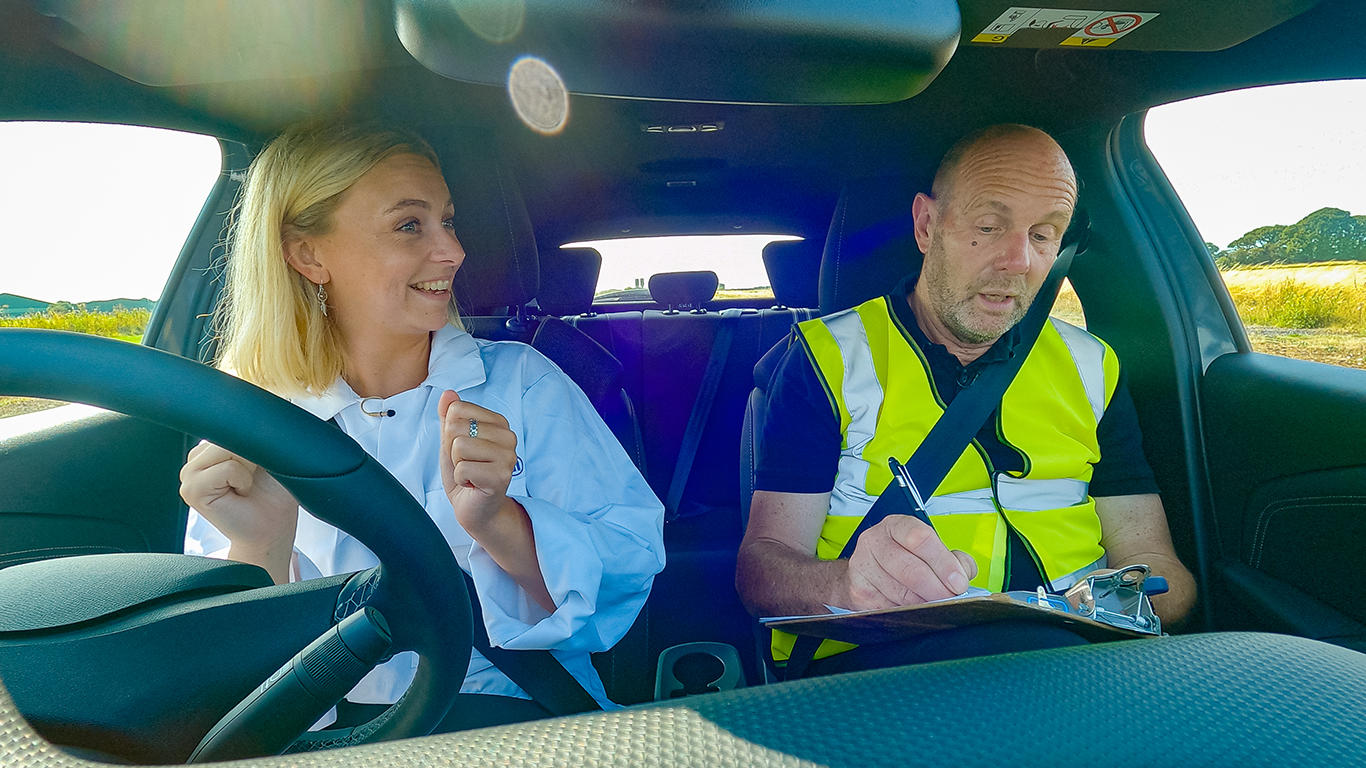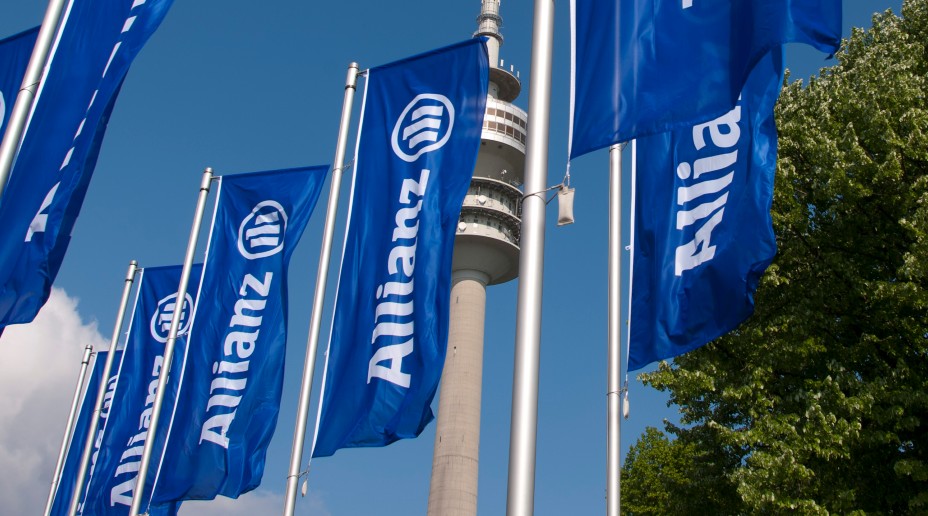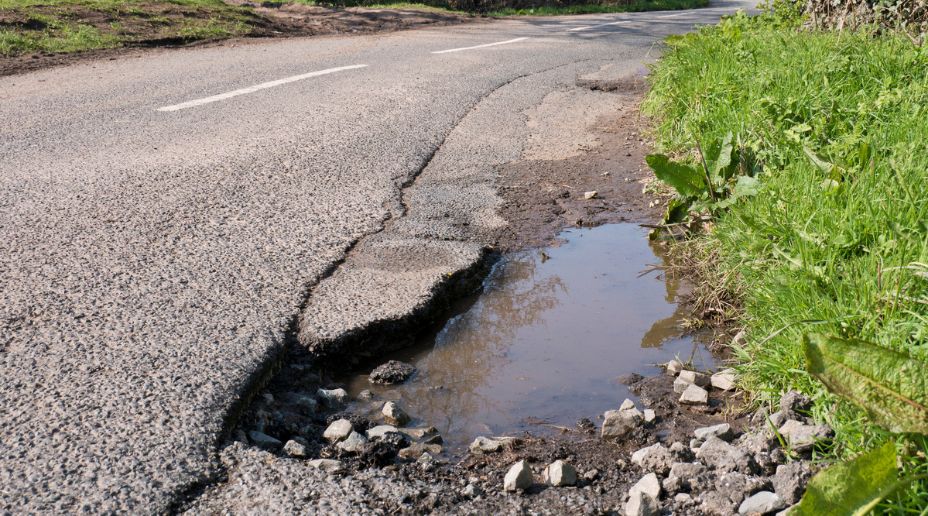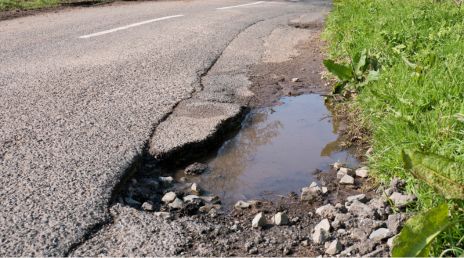Weary behind the wheel?
Our study reveals driving tired results in twice as many mistakes.
Motorists are twice as likely to drive recklessly and impede people’s safety on the road if tired, according to new research from car insurance provider Allianz.
Weary drivers made more than twice the number of mistakes on everyday driving skills than those who were well-rested, with reaction times, precision, control and overall awareness all deteriorating.
The findings come from an experiment conducted by Allianz. It’s raising awareness about the significant dangers of driving tired after research revealed that 8 in 10 Brits (86%) have driven tired with over a third (41%) admitting to “powering through” to their destination instead of pulling over to rest.
The oldest drivers (65+) are the safest with only 2% stating they drive tired. Conversely, the younger generation (18-34) are most guilty of dangerous behaviour behind the wheel with one in three stating they drive tired often and 64% stating they “power through” rather than take a rest.
As a result, one in five has had a near crash or incident on the road due to tiredness. Data from the insurer also shows that accidents in the early hours are more likely to result in a car being written off and result in more expensive claims.
The study underscores how critical adequate sleep is for safe driving and highlights the heightened risks associated with driving while fatigued.
The data
New data from the insurer shows that on average tiredness claims account for almost 24 a month – nearly one per day. Top motor claims due to tired driving include colliding into someone’s property (23%), changing lanes where it’s not clear to do so (12%) and cars ending up on the same side of the road (10%).
Accidents occurring in the early hours – when drivers are much more likely to be tired – are over twice as likely to result in a car being written off compared to accidents in the early evening.
Claims data shows the most serious accidents take place in the early hours of the morning. More than half (54%) of accidents at 1.30am resulted in written-off vehicles compared to less than a quarter (23%) at 6pm.
The average claim cost nearly £8,000 at 1.30am in 2023, compared to £5,700 for accidents occurring during late afternoon (around 6pm). And as the hours go on claims costs rise, with the average claims at 4am in 2023 costing over £20,000.
One in 10 respondents have had passengers express concerns about their tiredness while driving. Rather than pulling over and resting, many resort to other methods to help stay alert behind the wheel in order to get to their destination quicker.
The most popular method to keeping awake while driving is opening the window (60%), following that drivers often crank up the volume of their music (30%), drink a strong coffee (26%) or sing along to an album or song they know (23%).
Despite the overwhelming majority of Brits that drive tired themselves, 50% of the same group agreed that people driving tired should be treated just as seriously as those driving under the influence of alcohol or drugs. A further 79% believe it is more dangerous than speeding.
The experiment
Allianz To assess the impact of fatigue on driving performance, Allianz conducted a controlled experiment with two groups of drivers.
The first control group consisted of well-rested individuals, whilst the second control group was comprised of tired drivers who were severely sleep-deprived.
Both groups were tasked with completing four driving tests designed to simulate common driving scenarios.
The results
The tired drivers performed worse across all four tasks, demonstrating the serious risks that come with driving without enough rest.
Emergency Braking at 50mph: Tired drivers exhibited delayed reaction times, resulting in longer stopping distances compared to their well-rested counterparts. This delay can make the difference between avoiding a collision and a serious accident.
Results: Tired drivers took longer to stop (3.87s vs. 3.69s), increasing the risk of a collision when driving.
Parallel Parking: Sleep-deprived drivers struggled with spatial judgement and precision, often requiring multiple attempts to park successfully, with some failing altogether. This underlines the risk of collisions, especially in tight urban environments.
Results: Fatigued drivers took longer (42s vs. 37.5s) and made more errors (8 vs. 4).
Slalom Exercise: The tired drivers had noticeable difficulty maintaining control of the vehicle, knocking over cones and veering off course. This loss of control is indicative of the impaired motor skills and delayed reflexes associated with fatigue.
Results: Tired drivers were slower (26s vs. 23s) and less precise (7 errors vs. 4).
Real-World Road Course: Even in a more relaxed, real-world driving environment, tired drivers showed a reduced ability to handle everyday driving tasks. Their reaction times were slower, and their overall hazard recognition, anticipation, and attention to the driving task were notably impaired.
Results: Fatigued drivers scored lower (71% vs. 77%) and made more minor errors (21 vs. 10).
The experts
Multi award winning Driving Safety Expert for some of the UK’s leading car brands, Paul Ripley comments: “Driving when you're tired isn’t just about feeling a little sluggish - it seriously affects your ability to react, make decisions, and control your vehicle safely. Our experiment shows that a lack of sleep can make you a danger on the road."
Caroline Johnson, Claims Director at Allianz personal lines business comments: "We want our roads to be as safe as possible for all motorists and our claims data and test results clearly demonstrate that driving tired puts your family, friends and road users at significant risk.
“With many students and their parents likely to be getting in the car and heading off to universities up and down the country or those off on a late summer break, we want to highlight the risks and hope our experiment shows just how dangerous it can be. If you're planning an early morning or late drive, try to get some extra rest, as this can make a big difference and the risks are simply too great. Road safety begins with responsible driving, and that means knowing when to rest and prioritise adequate sleep."
Find out more information about this experiment and tips on preventing tired driving in our car insurance magazine advice pages.
The survey was carried out by OnePoll between 10 to 12 of September to 2,000 UK drivers.
Top ten methods drivers use to stay awake behind the wheel
1. Opened in the window to let some cold air in (60%)
2. Cranked up the volume of the music (30%)
3. Drank a strong coffee (26%)
4. Put on an album or song I knew I’d want to sing along to (23%)
5. Turned the air conditioning to its coldest (23%)
6. Drank an energy drink (16%)
7. Asked other passengers to keep conversation going (14%)
8. Talked to yourself (14%)
9. Opened a snack (12%)
10. Slapped yourself on the face (10%)
Test Criteria:
The first control group consisted of well-rested individuals, each having received the recommended minimum of 7-8 hours of sleep.
The second control group was comprised of tired drivers who were severely sleep-deprived, having slept for a maximum of two hours.
Each tired driver was paired up with a non-tired driver, each with a similar level of driving experience and in the same age bracket to help standardise test results.
Both groups were tasked with completing four driving tests designed to simulate common driving scenarios:
1. Emergency Braking: Drivers were required to perform an emergency stop at a predetermined point to measure reaction time and braking accuracy.
2. Parallel Parking: Participants were tasked with parking a vehicle between two cars in a standard-size parking space, assessing their spatial awareness and precision.
3. Slalom Exercise: Drivers navigated a vehicle through a series of cones arranged in a slalom pattern to test their ability to maintain control and precision while steering.
4. Road driving: Each driver spent 10 minutes driving the instructor around a road course dealing with normal everyday driving hazards such as stopping and starting, use of signals, use of gears and speed into the various hazards.
To ensure the results are as standardised and valid as possible we also:
· Used the same vehicle for all tests
· Had a driving expert conduct all tests in the same manner
*Errors were judged by our driving instructors as any driving practices that could be deemed as dangerous or reckless to those driving or those in their vicinity
Methodology:
To help standardise the experiment and control the factors of those participating we put in place a strict set of parameters for our “test subjects”, ensuring an even playing field and making our results more robust.
Pattern Sleep Group were asked to continue a regular sleep pattern of 8+ hrs to ensure they are well rested and energised before the experiment.
The Sleep Deprived Group had 2hrs sleep maximum the night before our tests and did not consume any caffeinated food or drinks ahead of time.
To ensure this criteria is met by both groups, each participant had to provide proof of sleep the night before through use of a sleep app on their phone/fitbits to track their sleep. If they were unable to provide proof they were not allowed to participate in the experiment.
Each group had have three participants from each age range listed below:
· 20-35
· 35-50
· 55-75
We paired a sleep deprived participant with their respective rested participant from the same age category.
Our participants were also matched based off the below factors:
· Driving lifestyle & Average miles driven per week
· How long they’ve held their licence
Safety:
Participant safety throughout the experiment was crucial and so various measurements were put in place to ensure this including risk assessments and speed limitations. To find out more about how we managed our participants' safety please use the contact information below and request the safety FAQs.
About Allianz Holdings plc
Allianz Holdings plc is the non-regulated holding company which owns the principal insurance operations of Allianz SE in Great Britain including Allianz Insurance.
About Allianz
The Allianz Group is one of the world's leading insurers and asset managers with around 125 million* private and corporate customers in nearly 70 countries. Allianz customers benefit from a broad range of personal and corporate insurance services, ranging from property, life and health insurance to assistance services to credit insurance and global business insurance. Allianz is one of the world’s largest investors, managing around 741 billion euros** on behalf of its insurance customers. Furthermore, our asset managers PIMCO and Allianz Global Investors manage about 1.8 trillion euros** of third-party assets. Thanks to our systematic integration of ecological and social criteria in our business processes and investment decisions, we are among the leaders in the insurance industry in the Dow Jones Sustainability Index. In 2023, over 157,000 employees achieved total business volume of 161.7 billion euros and an operating profit of 14.7 billion euros for the group.
* Including non-consolidated entities with Allianz customers.
**As of June 30, 2024.
Mandatory corporate information: Corporate disclosures
These assessments are, as always, subject to the disclaimer provided below.
Cautionary note regarding forward-looking statements
This document includes forward-looking statements, such as prospects or expectations, that are based on management's current views and assumptions and subject to known and unknown risks and uncertainties. Actual results, performance figures, or events may differ significantly from those expressed or implied in such forward-looking statements.
Deviations may arise due to changes in factors including, but not limited to, the following: (i) the general economic and competitive situation in the Allianz’s core business and core markets, (ii) the performance of financial markets (in particular market volatility, liquidity, and credit events), (iii) adverse publicity, regulatory actions or litigation with respect to the Allianz Group, other well-known companies and the financial services industry generally, (iv) the frequency and severity of insured loss events, including those resulting from natural catastrophes, and the development of loss expenses, (v) mortality and morbidity levels and trends, (vi) persistency levels, (vii) the extent of credit defaults, (viii) interest rate levels, (ix) currency exchange rates, most notably the EUR/USD exchange rate, (x) changes in laws and regulations, including tax regulations, (xi) the impact of acquisitions including and related integration issues and reorganization measures, and (xii) the general competitive conditions that, in each individual case, apply at a local, regional, national, and/or global level. Many of these changes can be exacerbated by terrorist activities.
No duty to update
Allianz assumes no obligation to update any information or forward-looking statement contained herein, save for any information we are required to disclose by law.
Other
The figures regarding the net assets, financial position and results of operations have been prepared in conformity with International Financial Reporting Standards. This Quarterly Earnings Release is not an Interim Financial Report within the meaning of International Accounting Standard (IAS) 34. This is a translation of the German Quarterly Earnings Release of the Allianz Group. In case of any divergences, the German original is binding.
Privacy Note
Allianz SE is committed to protecting your personal data. Find out more in our privacy statement.
Media contacts:
External communications manager
Email: natasha.gibbs@allianz.co.uk
Mobile: 07443 237 651



























